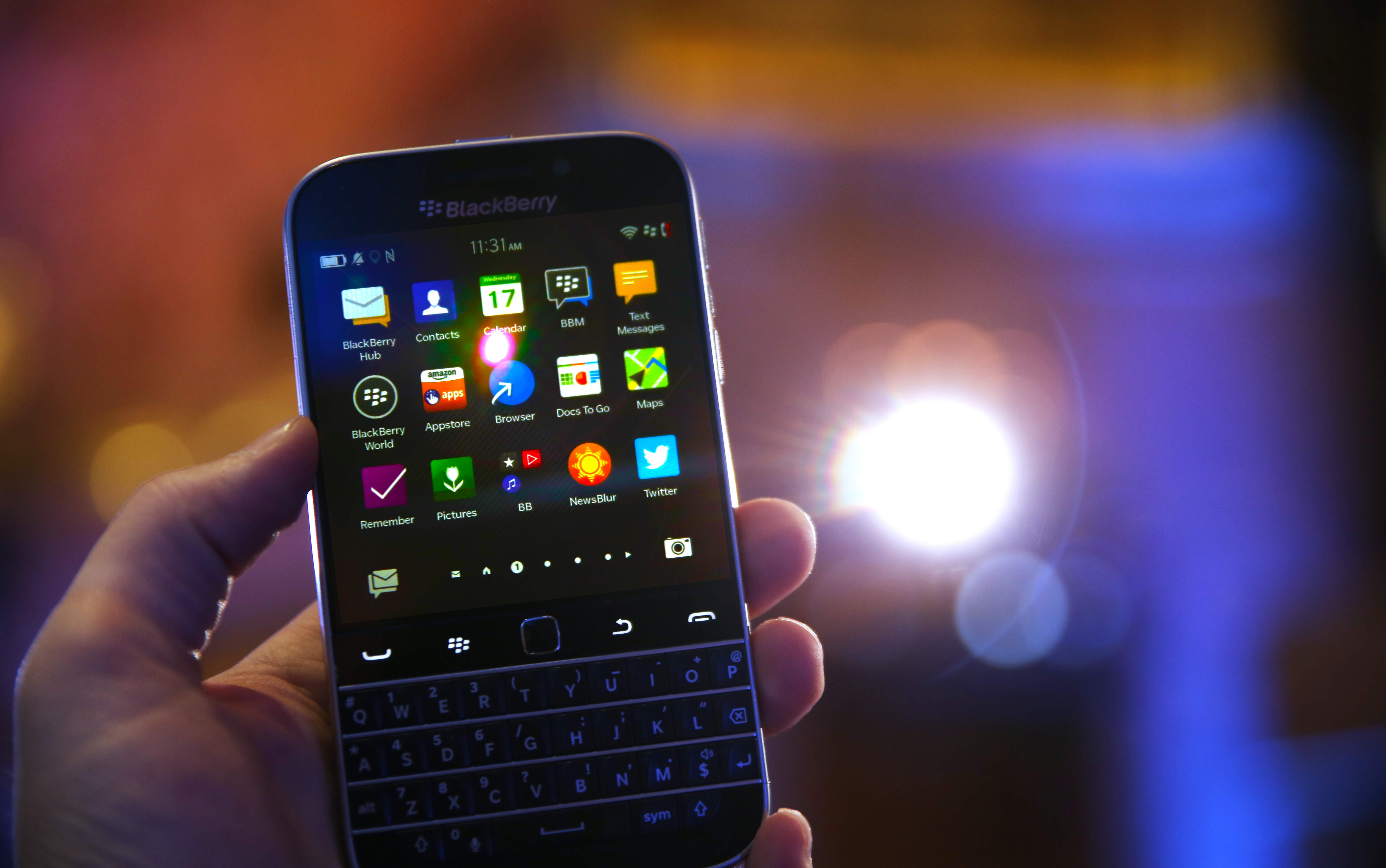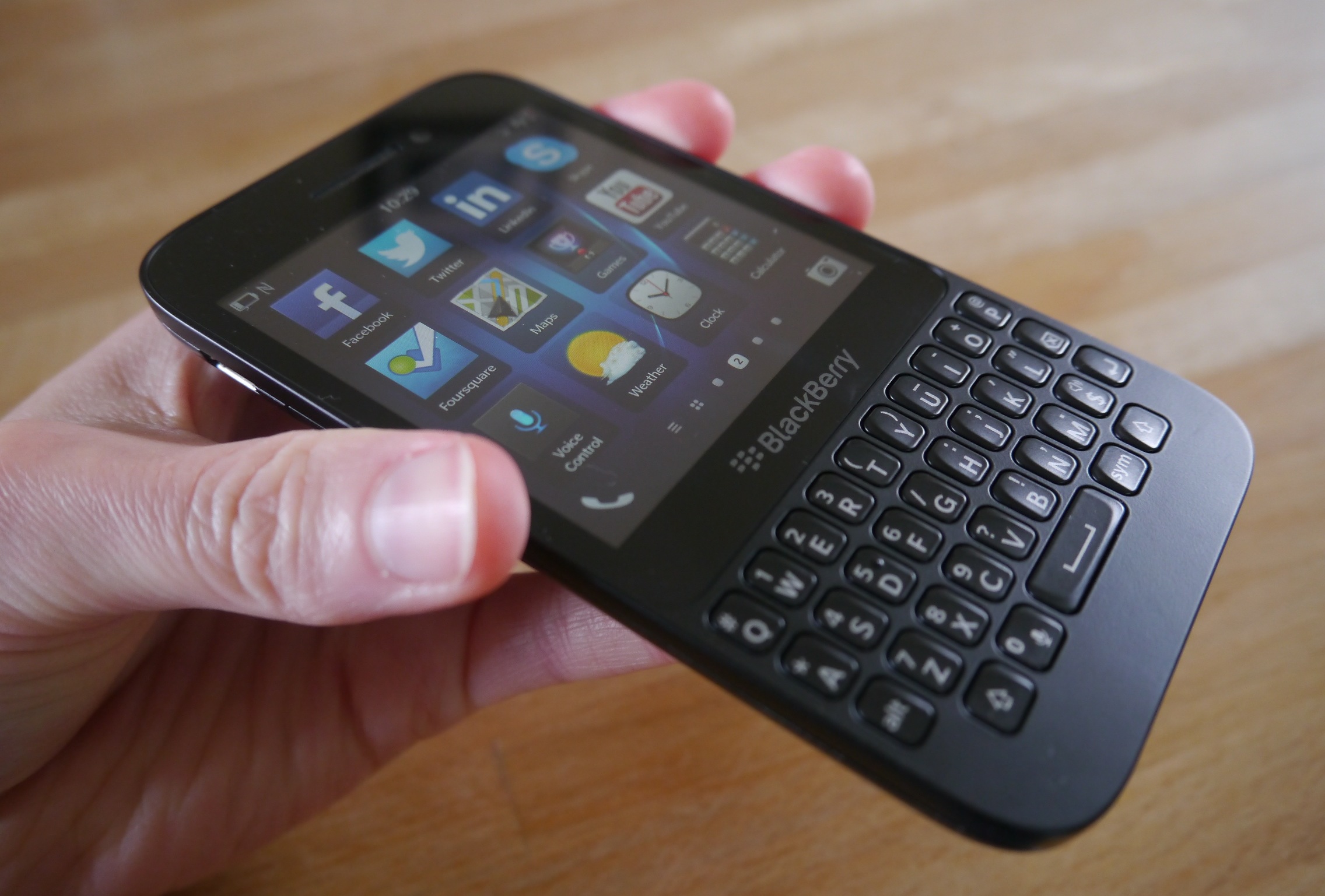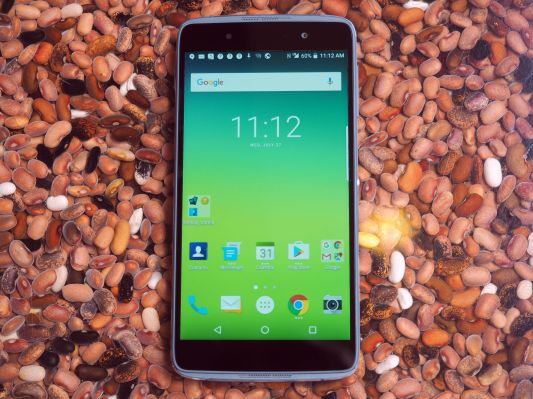In May, Ralph Pini was given the somewhat unenviable task of heading up BlackBerry’s device team. The announcement of his promotion to that role came roughly a month after the one-time smartphone leader announced yet another troubled quarter, with a nearly 30-percent revenue drop.
Five months later, the company put the final nail in the coffin of its in-house hardware development team, officially making the transition from smartphone maker to something decidedly more abstract. The BlackBerry of the future will be one-part software company, one part idea, a stamp of approval for other companies to wear as a sign of their dedication to notions of smartphone security and productivity.
Pini, who joined BlackBerry back in 2012 with the acquisition of this company Paratek Microwave, explains that yesterday’s news had been in the works well before he was tapped to take charge of the devices team. “We have been working on it for quite some time,” Pini tells TechCrunch. “We’re moving away from an era of doing internal hardware development, which, to be honest, is a low-margin area and very difficult to compete in.”

Certainly the transition has been evident in recent devices produced by the company. Late last year, the company bit the bullet and released the Priv, its first Android device. Last month, shortly after announcing the end of its Classic line of handsets, the company released the DTEK50, essentially a rebadged take on the Alcatel Idol 4, loaded up with the Canadian company’s proprietary software. As it turns out, the device wasn’t an outlier so much as a new precedent for the company.
“It was manufactured by one of our partners,” Pini explains without naming names.
“We did the sales and distribution through the traditional channels. The next step is to grow the agreements that we have with these partners, to expand and license both our brand and our software.”
BlackBerry devices will continue to be available, but the heavy lifting of product design, marketing and distribution will be handled by yet to be announced partners, with the company serving in more of an advisory/licensing role.
In September of last year, BlackBerry CEO John Chen gave himself a one-year deadline with which to make its devices profitable, telling CNBC at the time, “If by September, I couldn’t find a way to get there, then I need to seriously consider being a software company only.” For his part, Pini calls the company’s recent devices a “reasonable success,” but adds that the profit margins are simply no longer worth it for the company that helped popularize the smartphone.
Pini places the blame on a shifting market. “You have to invest heavily on innovation and have to be able to reset the market every few years,” he says, adding, “It is very difficult today unless you control the chipsets and the innards to really achieve the differentiating level that you need. All of these devices on the market are based on the same chipset platform, give or take. And they all have minor capabilities to differentiate themselves from a hardware point of view. The consumer is really expecting the differentiating factor to come from the usability of the phone – the software.”

While the company will continue to develop its BB10 software for other markets, here in the US, that means the Android augmentations the company has offered up since the PRIV, with applications like DTEK security and the BlackBerry Hub unified inbox. The offerings will likely manifest themselves as fully branded devices along the lines of the DTEK50 and less prominent partnership, wherein the company gets second billing.
Pini admits that such partnerships are not likely to occur with Android’s biggest names, who have already developed their own in-house security and productivity offerings. The company is instead targeting what he deems “second- and third-tier” handset makers.
The first licensing deal is with BB Merah Putih, a new joint venture out of Indonesia, the largest market for BlackBerry hardware. The company has yet to reveal any such plans for North America, but while Pini won’t confirm whether the current BlackBerry lines will continue as a result of third-party partnerships, he says somewhat more cryptically, “There will be continuity in the marketplace.” The company will also continue to aggressively license its patents, of which it controls around 38,000.
As for what such a move while mean for the company’s team moving forward, Pini says that he does not anticipate any major changes to staffing, though some smaller scale ones may occur throughout the transition. “We have been continuing to improve the efficiency of the group, and as you transition, you have some functions that are more needed than others,” he explains. “I don’t detect major changes, but I do have a quarter by quarter plan, where I would like the efficiency to be somewhat higher.”
